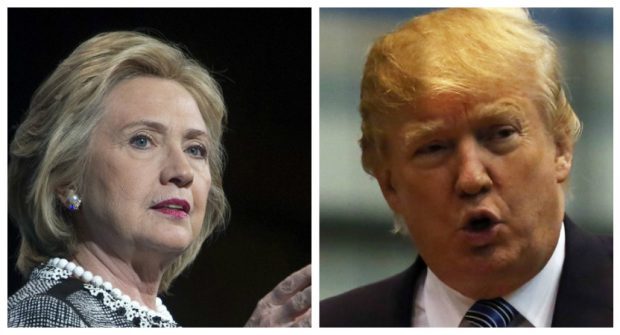Republican Donald Trump and Democrat Hillary Clinton moved closer to winning their parties’ nominations with a series of victories in the Super Tuesday elections, the biggest day of the primary campaign.
Mrs Clinton won seven and Mr Trump at least six states as they distanced themselves from party rivals and looked ahead to a November presidential election showdown.
Mrs Clinton also won the Democratic caucus in American Samoa, picking up 73% of 223 votes cast on the South Pacific island chain.
Her opponent, Bernie Sanders, won the Oklahoma primary and caucuses in Minnesota and Colorado, as well as the primary in his home state of Vermont.
In the Republican race, Ted Cruz, a firebrand conservative senator, won his home state of Texas and Oklahoma, and Marco Rubio, a favourite of the party establishment, triumphed in Minnesota for his first victory.
Both are seeking to break out as Mr Trump’s main rival, after the billionaire won in Virginia, Arkansas, Alabama, Massachusetts, Tennessee and Georgia.
Mr Cruz desperately needed the Texas victory in order to stay in the race, but Mr Trump’s wins in the South were a blow to him, as he once saw the region as his opportunity to put himself on a path to the nomination.
Instead, he has watched Mr Trump, a brash New York real estate mogul, display surprising strength with the region’s evangelical Christians and social conservatives.
Mr Rubio’s win in Minnesota gave him a boost on an otherwise disappointing night. His long-shot hopes now rest with his home state, Florida, which votes on March 15, but polls show him trailing Mr Trump there.
Mrs Clinton, the former secretary of state and senator, won in Texas, Arkansas, Alabama, Tennessee, Georgia and Virginia.
The wins reflected her strength in the South, where black voters are an important part of the Democratic base and overwhelmingly support her.
But she also won Massachusetts, picking up her first victory in Mr Sanders’ native New England.
